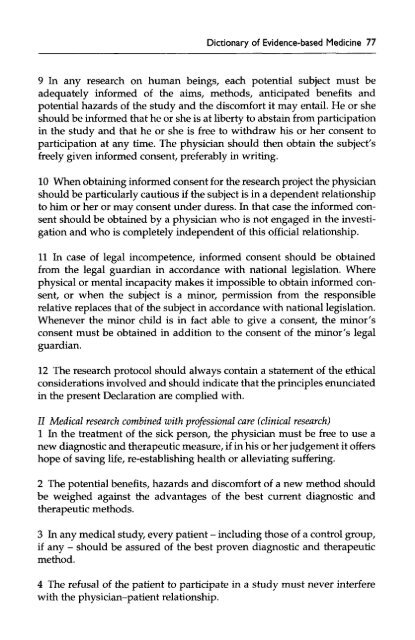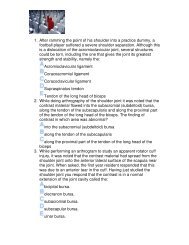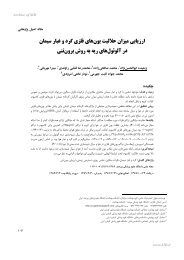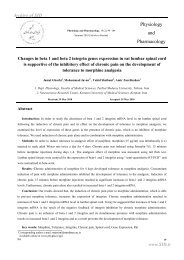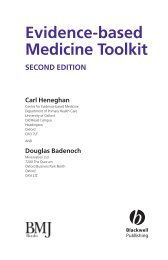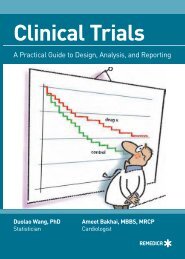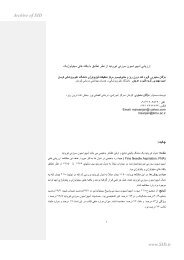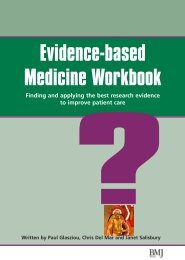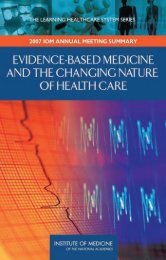Dictionary of Evidence-based Medicine.pdf
Dictionary of Evidence-based Medicine.pdf
Dictionary of Evidence-based Medicine.pdf
Create successful ePaper yourself
Turn your PDF publications into a flip-book with our unique Google optimized e-Paper software.
<strong>Dictionary</strong> <strong>of</strong> <strong>Evidence</strong>-<strong>based</strong> <strong>Medicine</strong> 77<br />
9 In any research on human beings, each potential subject must be<br />
adequately informed <strong>of</strong> the aims, methods, anticipated benefits and<br />
potential hazards <strong>of</strong> the study and the discomfort it may entail. He or she<br />
should be informed that he or she is at liberty to abstain from participation<br />
in the study and that he or she is free to withdraw his or her consent to<br />
participation at any time. The physician should then obtain the subject's<br />
freely given informed consent, preferably in writing.<br />
10 When obtaining informed consent for the research project the physician<br />
should be particularly cautious if the subject is in a dependent relationship<br />
to him or her or may consent under duress. In that case the informed consent<br />
should be obtained by a physician who is not engaged in the investigation<br />
and who is completely independent <strong>of</strong> this <strong>of</strong>ficial relationship.<br />
11 In case <strong>of</strong> legal incompetence, informed consent should be obtained<br />
from the legal guardian in accordance with national legislation. Where<br />
physical or mental incapacity makes it impossible to obtain informed consent,<br />
or when the subject is a minor, permission from the responsible<br />
relative replaces that <strong>of</strong> the subject in accordance with national legislation.<br />
Whenever the minor child is in fact able to give a consent, the minor's<br />
consent must be obtained in addition to the consent <strong>of</strong> the minor's legal<br />
guardian.<br />
12 The research protocol should always contain a statement <strong>of</strong> the ethical<br />
considerations involved and should indicate that the principles enunciated<br />
in the present Declaration are complied with.<br />
17 Medical research combined with pr<strong>of</strong>essional care (clinical research)<br />
1 In the treatment <strong>of</strong> the sick person, the physician must be free to use a<br />
new diagnostic and therapeutic measure, if in his or her judgement it <strong>of</strong>fers<br />
hope <strong>of</strong> saving life, re-establishing health or alleviating suffering.<br />
2 The potential benefits, hazards and discomfort <strong>of</strong> a new method should<br />
be weighed against the advantages <strong>of</strong> the best current diagnostic and<br />
therapeutic methods.<br />
3 In any medical study, every patient - including those <strong>of</strong> a control group,<br />
if any - should be assured <strong>of</strong> the best proven diagnostic and therapeutic<br />
method.<br />
4 The refusal <strong>of</strong> the patient to participate in a study must never interfere<br />
with the physician-patient relationship.


